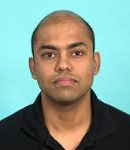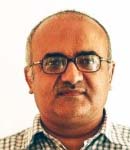The production of small-scaled components with complex features is gaining increasing importance due to the trend of miniaturization of products. As a result, there is a growing need for fast, reliable, mass micromachining of functional
components. In contrast to conventional macro-scale machining, the process zone in micro-scaled machining is usually limited to one or several grains of the metallic work-piece material. This introduces additional complexity
that is non-trivial. Consequently, a cutting response in the micro-scale differs significantly from that of its macro-scale counterpart. For example, it is experimentally observed that the cutting force and chip morphology
are dependent on the underlying texture of the work-piece material in micromachining of single-crystal metals. To better understand local deformation processes at a tool–work–piece interface in a micromachining process, a thorough
analysis of deformation mechanisms at grain level is required. While the effect of crystallographic orientation on cutting-force variation is extensively reported in the literature, the development of the single-crystal machining
models is somewhat limited.
Additionally, in recent years, significant advanced in machining processes has been made to diminish some of the well-known detrimental effects of conventional machining processes. As an example,
hybrid or assisted machining processes – in which a main process directly removes material, while the other ‘assists’ in this by improving the conditions of machining – has been used to demonstrate significant improvements
in the quality of the machined component. A well-known hybrid machining process is vibration assisted machining, in which typically high-frequency vibrations are imposed on a conventional cutting tool during machining. This
converts the machining to a micro-chipping process, demonstrating significant reductions in cutting forces with improved surface finish. Since machining force is an indication of damage incurred during the process, a significant
reduction in cutting forces will lead to damage free component manufacture. With reduced forces, work holding size and constraint can be reduced, therefore allowing more of a component to be machined in one operation.
The present
course will focus on modelling aspects in the small length-scale. It will cover some of the essential background material required to build a realistic numerically-robust computational model of small scale plasticity considering
the underlying material micro-structure. A part of the course will explore the role of modelling in predicting the outcome of hybrid machining in the small-scale. It will demonstrate the power of numerical modelling in determining
appropriate processing parameters without having to design expensive and time-consuming experimental studies. With such knowledge students and practitioners in India can enhance their skill set and make essential contributions
in knowledge generation for academic and industrial use in precision machining and manufacture. This will directly address the goal of Make in India, aiding in wealth generation and bringing India to the forefront of next generation
high end manufacturing.

